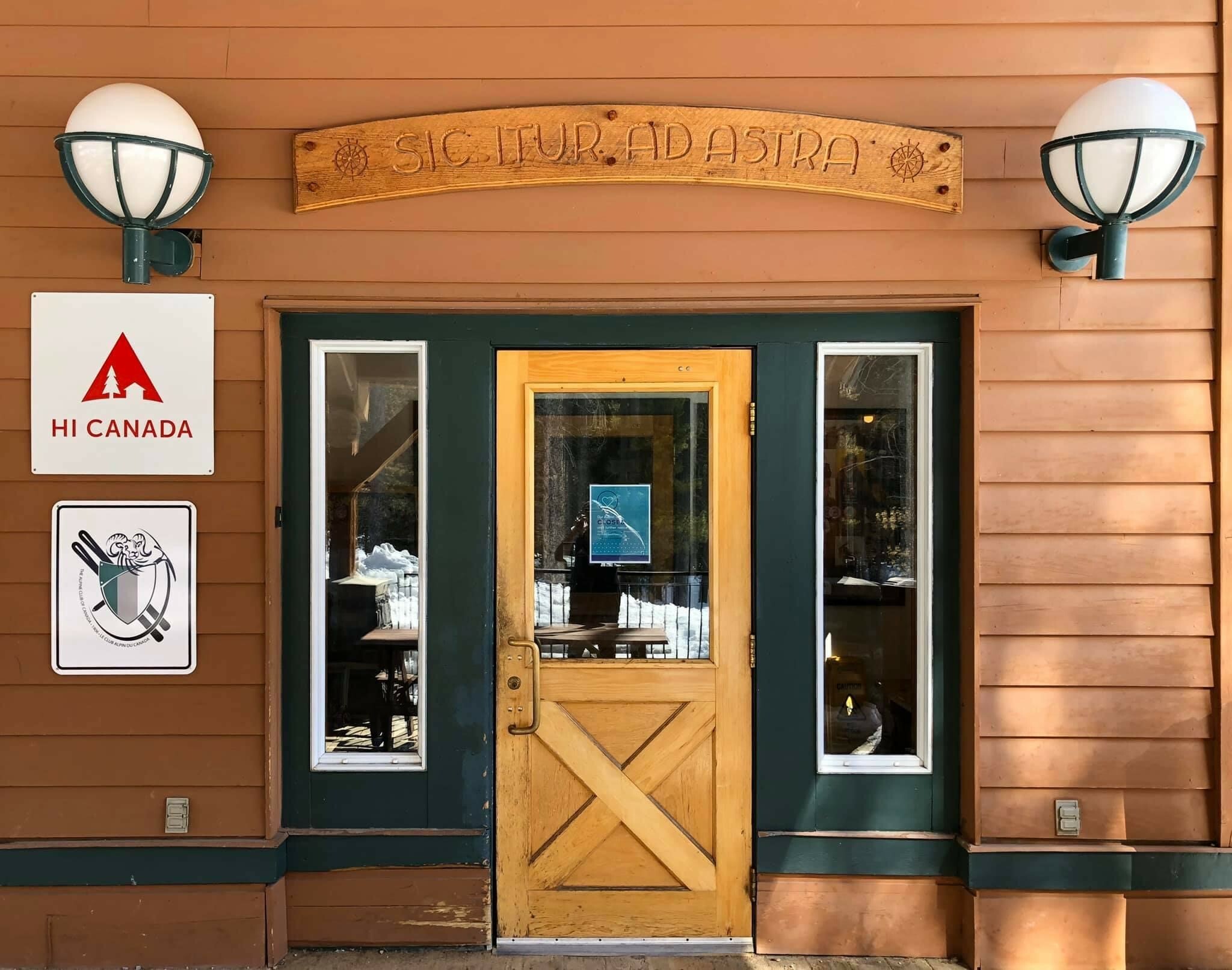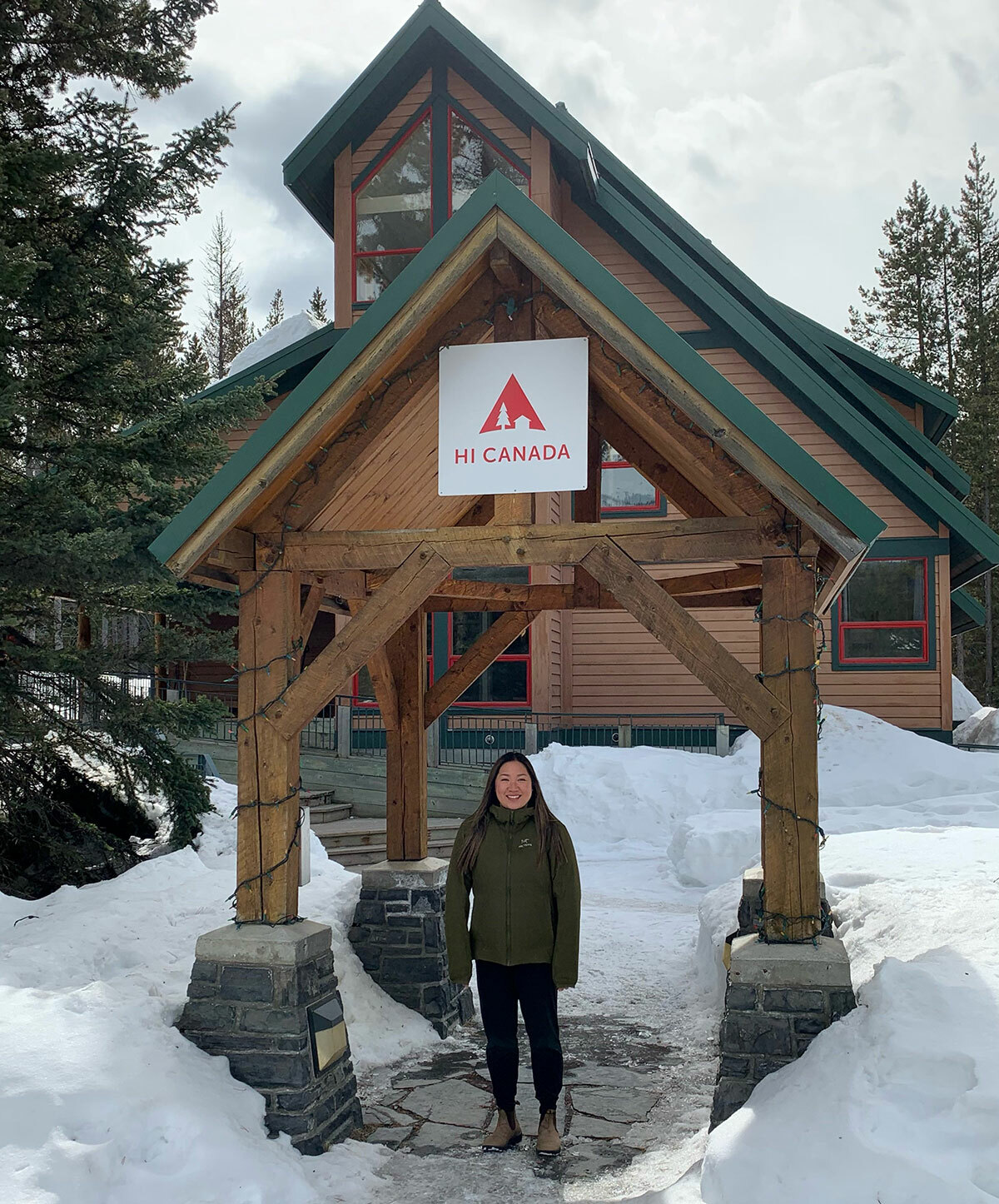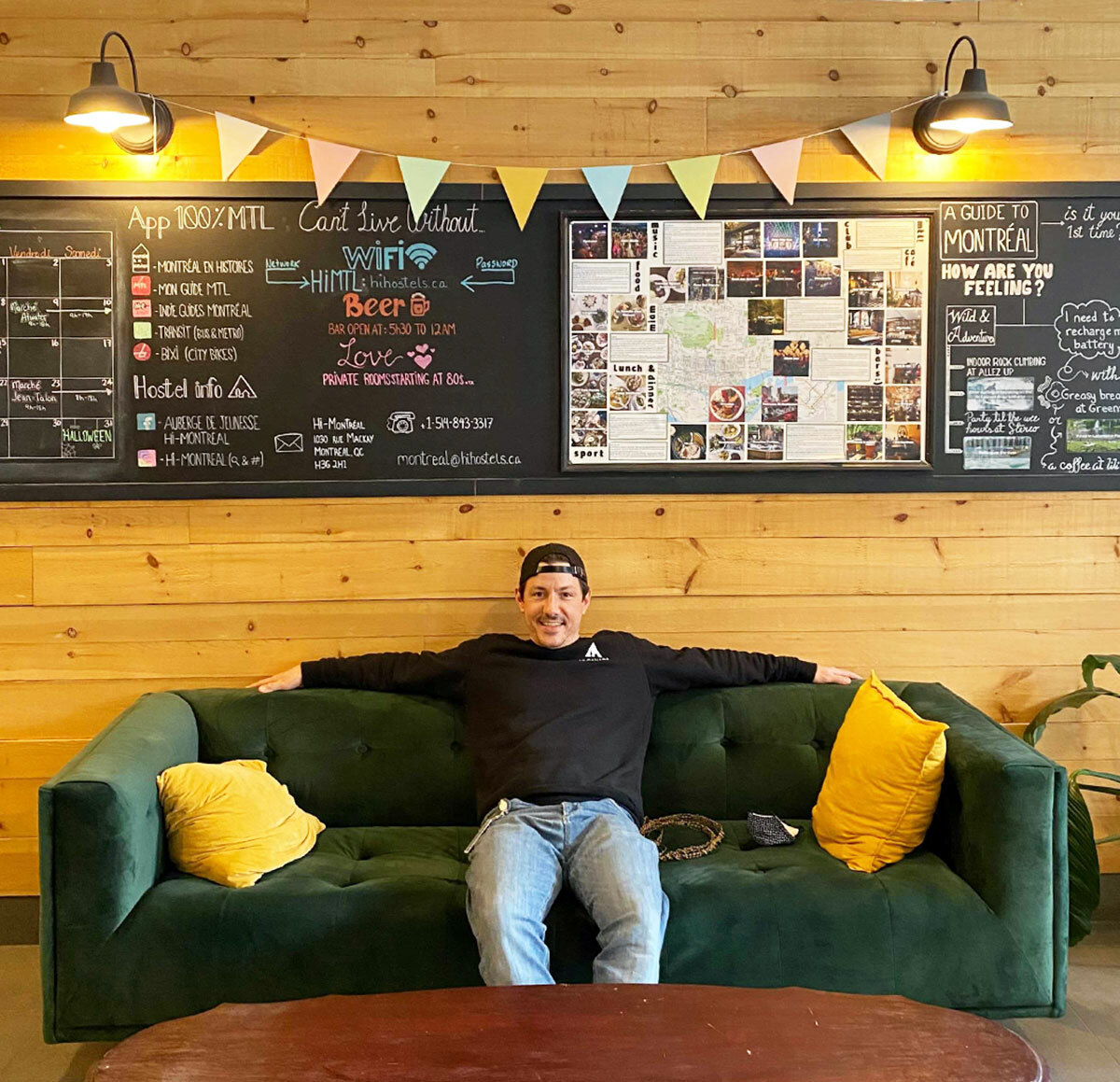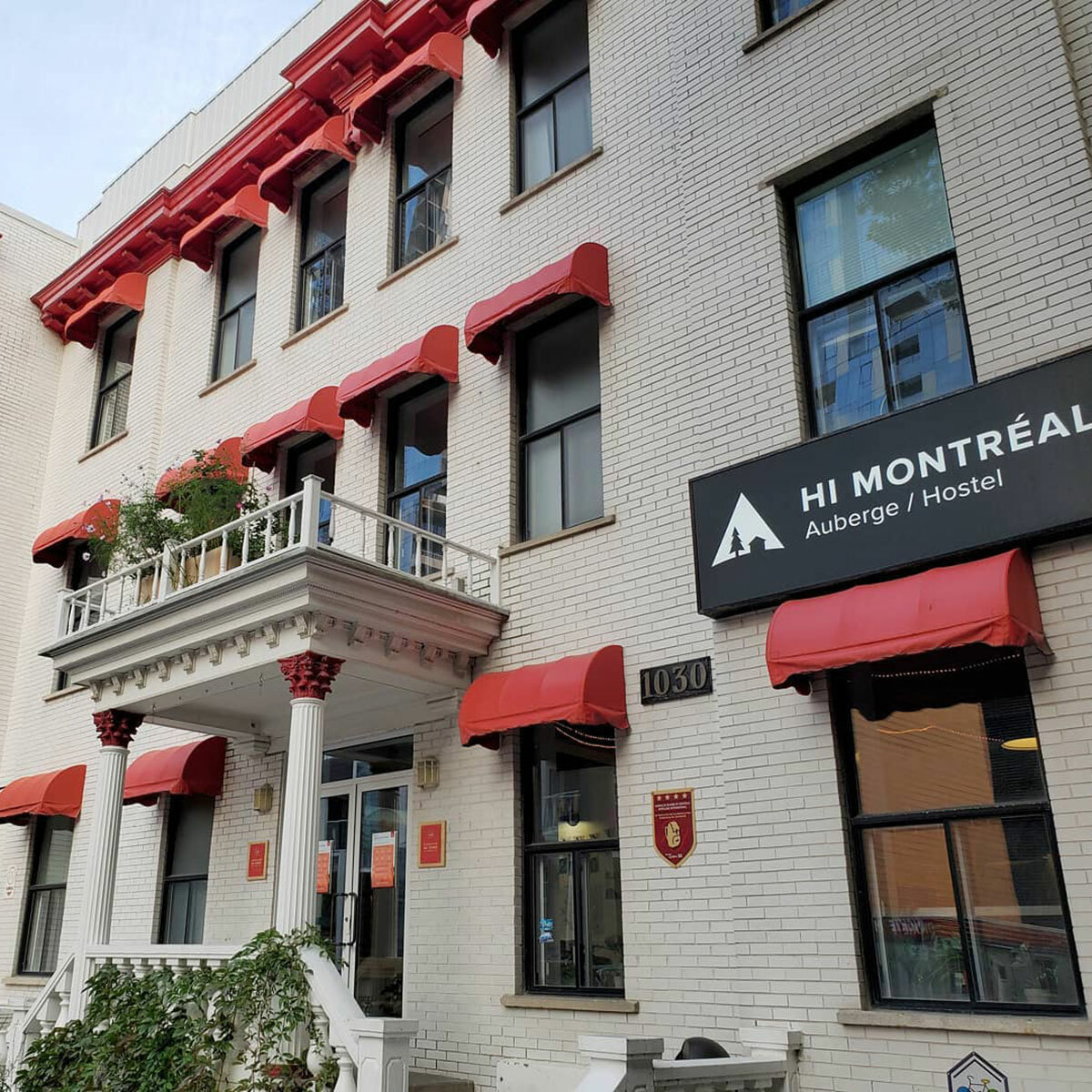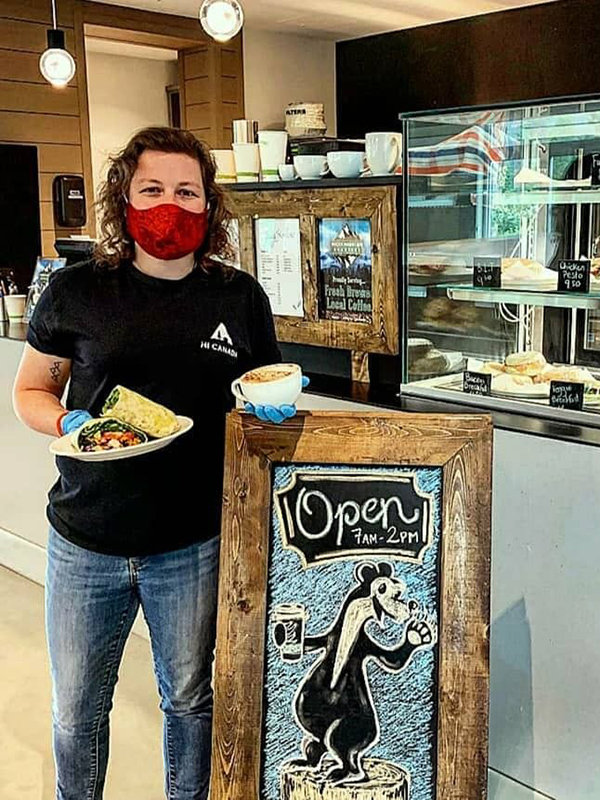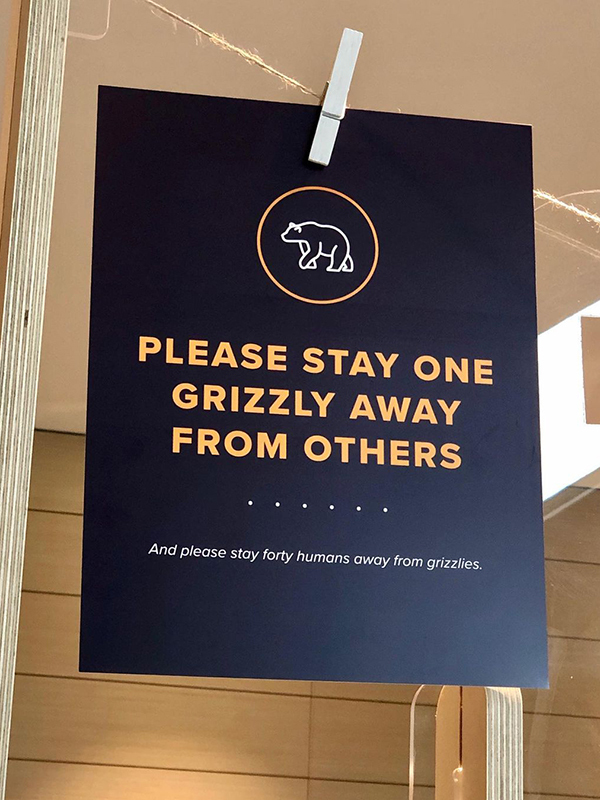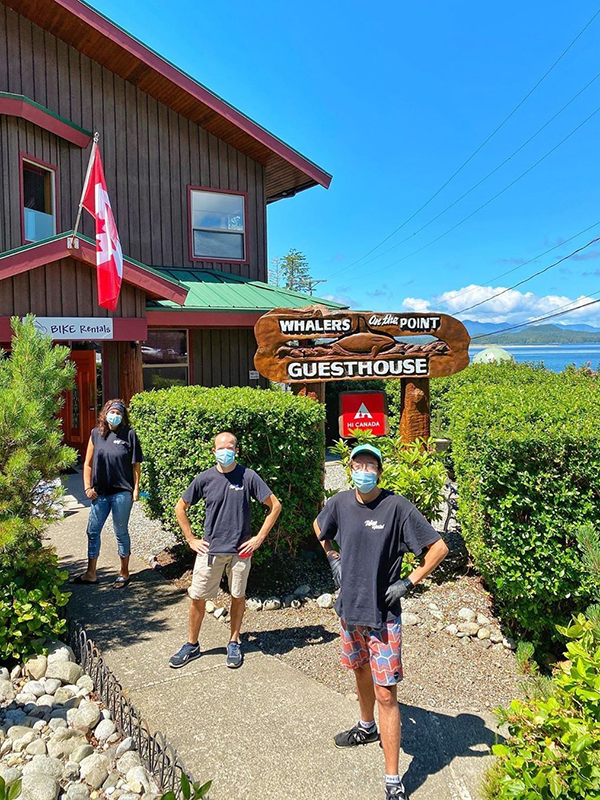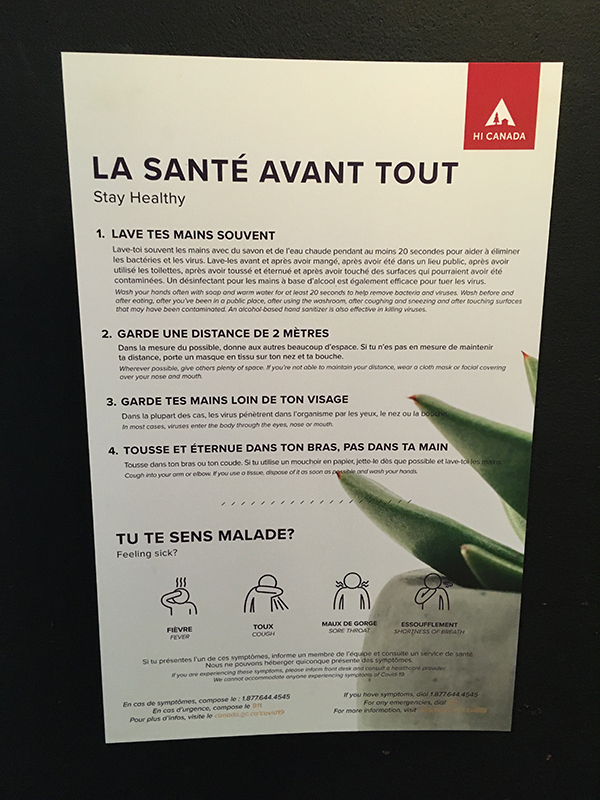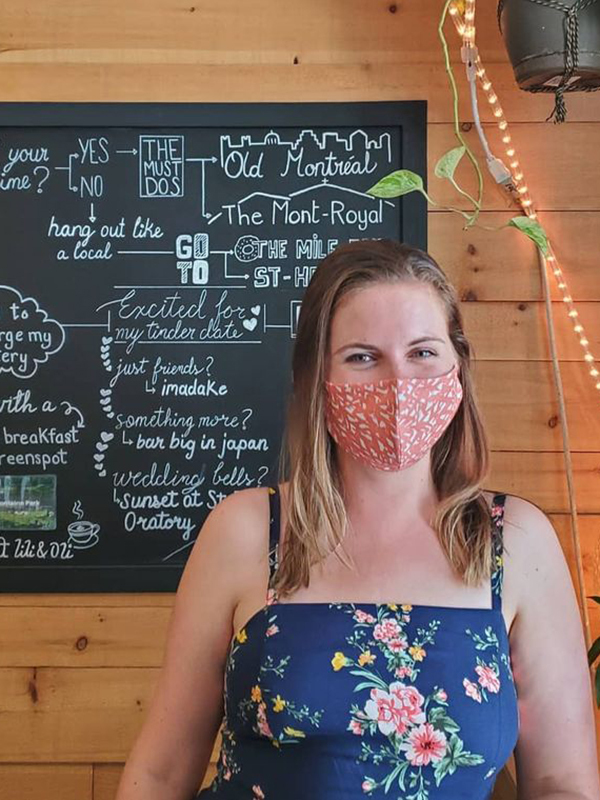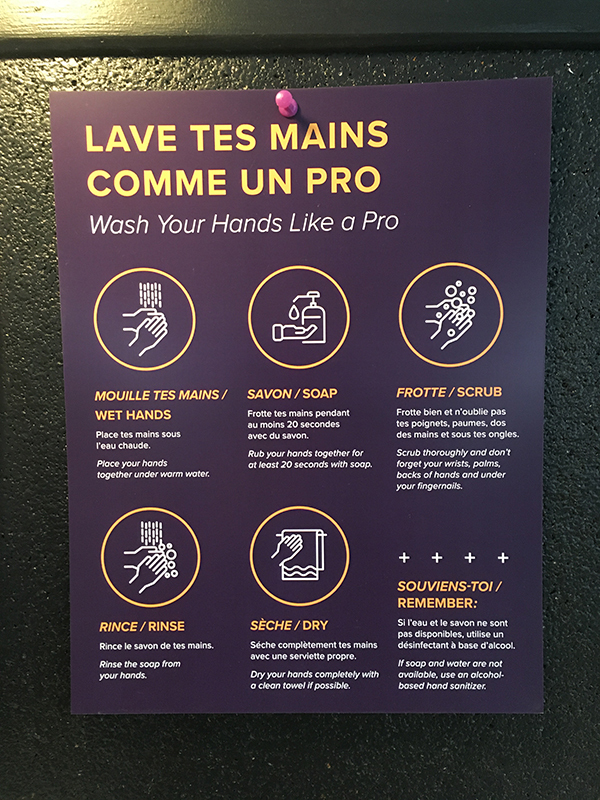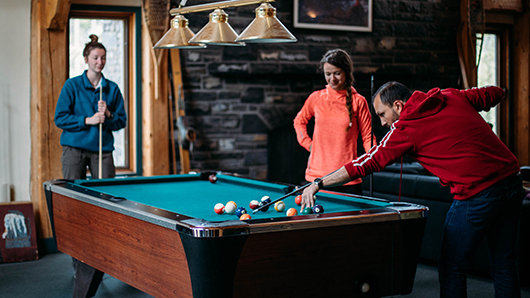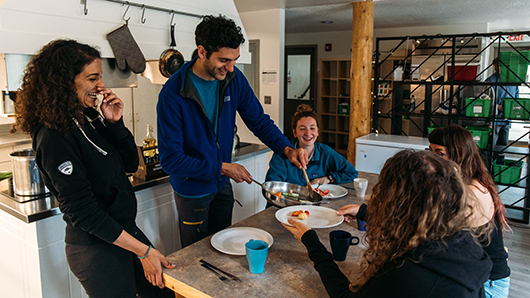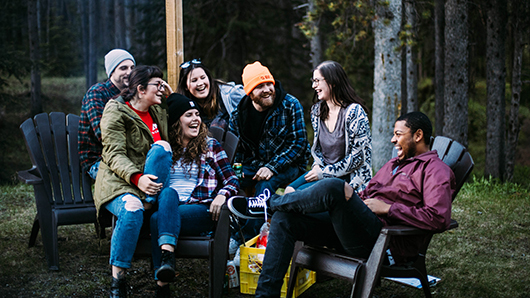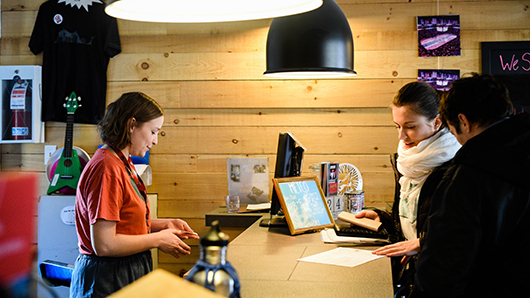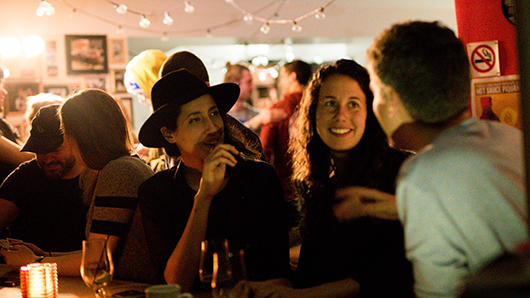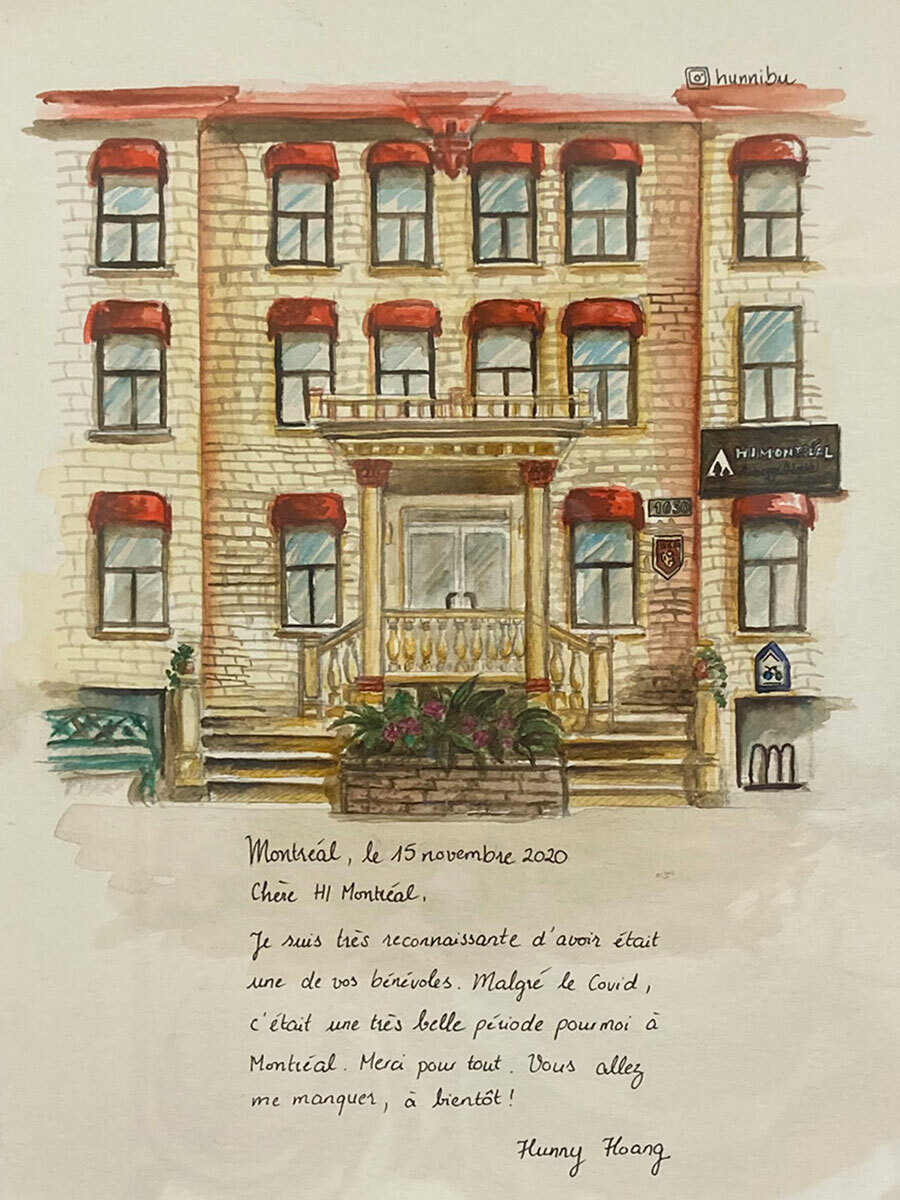One year later: the impact of the pandemic on our hostels and our people
Linda Dip has been the manager of HI Lake Louise Alpine Centre for 14 years. In all those years she had never locked the front doors. Not that she could—the doors to the hostel lobby didn’t even have a lock on them. Like so many hostels around the world, this one was open 24 hours a day, 7 days a week, 365 days a year, as thousands of guests from around the world would pass through into this impressive mountain lodge set amongst towering trees in Lake Louise. Then came March 2020.
As news of the coronavirus spread, hostel staff put up signs reminding guests to be diligent about washing their hands, keeping their distance and watching for symptoms. Within a week, the WHO declared the virus a pandemic. Cancellations started rolling in, the borders closed and not long after came the decision to close HI Lake Louise Alpine Centre and most other HI hostels across Canada. Linda quickly ordered a lock and had it installed on the front doors. On March 22nd, for the first time, she closed and locked the hostel’s doors. And then she went home and cried.
It was like this at HI hostels across the country. Decisions were made quickly by managers and head office staff in light of a constantly evolving and uncertain situation. One by one, the hostels were closed, booked guests were notified that their stays would have to be cancelled, refunds were issued, staff were laid off and the doors were locked. Like the flood lights going off one by one at a football stadium, the HI network went quiet and dark within a matter of days. In HI Canada’s 87 years, nothing like this had ever happened before.
A year later, we’re looking back at those days and what followed at two of our more than fifty hostels that make up the HI Canada family.
“That was a very emotional day for me. Even thinking about it, I still get teary eyed,” Linda says about March 22nd. “I felt scared, sad, overwhelmed about what was happening, what was going to happen, but mostly, I felt uneasy about the unknown. That day, all of our staff came in to do a final close-up and finished cleaning the restaurant and the hostel. I did a final walk-through of both buildings to ensure all windows and doors were locked. All the staff signed out and went home, and I remember going to my office, sitting there alone in an empty building, in complete disbelief about what was happening. It felt surreal.”
One frequent guest of HI Lake Louise who was there in those final days, later wrote a letter to the hostel about what she witnessed during those difficult days, as Linda had the task of laying off most of her 30-person staff.
“I observed the faces of many employees and guests,” the guest wrote. “Some had fear written in them, others sadness and uncertainty. I myself was wondering if I should build an igloo outside after the hostel closes? And then I realized how much harder it must have been for Linda, the bearer of the bad news to her employees, telling them they will be unemployed.
“I observed employees leaving her office, one by one, some of them I’ve gotten to know very well over the years. Some of them had tears in their eyes, others put on a more brave front.
“And in the middle of this war-like atmosphere, I saw Linda giving orders with an absolutely cool, polite resolve, not stopping for a moment, not wavering. She absolutely knew what she was doing and how to do it, as if she was managing a pandemic closure of the hostel every day. For a second, it felt like watching a catastrophic war movie with a female heroine Linda, except that... it was a real-life pandemic.”
Nicolas Lemaire has worked for HI Canada for twenty years and since 2009 he has managed HI Montreal, a cute three-storey building painted white with bright red awnings on each of its windows, tucked into a city side street in the heart of downtown. He was off on paternity leave when HI Montreal closed on April 1st, 2020, but was kept well up to speed by his colleagues, who, at first, were perhaps a bit naively optimistic about the state of affairs, like a lot of us were in the early days of closures and restrictions.
“When we closed, no one had any idea that the pandemic would last for a long time,” he recalls. “Everyone hoped to be back in service before long.”
By the time Nicolas returned from paternity leave, the hostel was empty save for a few remaining staff members there to keep an eye on the building. It’s one thing to be alone in a hostel because no one else happens to be staying there. But for big hostels like HI Lake Louise Alpine Centre and HI Montreal, it’s really unusual for these buildings to be so empty.
The effects of the pandemic were especially apparent in a busy city like Montreal as the city streets suddenly emptied. “The commute to the hostel was surreal. With everyone instructed to stay home, the usually bustling downtown streets became completely deserted. Montreal became a ghost town, adding to the sense of anxiety that everyone felt.”
In the much smaller village of Lake Louise, which is often bursting with tourists year-round, a rare quiet fell over the town and its namesake lake. “When the pandemic started, Lake Louise was the quietest I have ever seen it. It was nice to be able to go to Lake Louise and not be surrounded by tons of people. There was a calm, peaceful feeling in our community for a few months.”
Behind the scenes, hostel managers and head office teams were busy planning for recovery, even if they didn’t necessarily know when it would begin. Operations, human resources and marketing teams pulled together Covid-19 safety plans, consulted with public health officers and industry associations, ordered supplies like masks, shields and sanitizer, trained staff and carefully monitored case numbers and government directives. On June 29th, HI Lake Louise Alpine Centre reopened its doors, along with a handful of other hostels in Alberta and BC. On July 1st, HI Montreal opened its doors, too.
Hostelling looked a lot different. Many of the best parts of hostelling just weren’t possible in this new reality.
Hostelling looked a lot different. Dorm rooms at HI Lake Louise Alpine Centre and HI Montreal operated at half capacity. Access to the kitchens was limited or eliminated, and guests were required to wear masks and keep their distance from others. Plexiglass shields had been installed at the front desks and signage posted throughout the hostels reminded guests not about upcoming pub crawls, bonfires or city tours, but about proper hand washing, social distancing and wearing masks. Regularly scheduled activities, those hallmark social gatherings that make hostels what they are, were cancelled. Many of the best parts of hostelling just weren’t possible in this new reality.
“There was a quietness that was completely foreign to us, even incompatible with the spirit of warmth and togetherness that we’re used to,” recalls Nicolas. “For safety's sake, all the energy and fervour that we usually put into socialising at the hostel had to be put on hold. It felt like the hostel had lost some of its soul.”
But while capacity was reduced and international visitors were few and far between (most of them already in the country by the time the pandemic hit and borders closed), guests still arrived and made the most of a weird summer with the help of these affordable places to stay. Many travellers were visiting from within the province or nearby, seeking an escape from their homes while cases dipped during the warmer months.
Guests took the changes in stride, and feedback around the safety measures and operational changes was overwhelmingly positive.
“Guests have been very compliant with the new protocols placed around the hostel,” says Linda. “They know that their safety is our top priority and there has been great feedback from guests about our hostel’s physical distancing measures and increased cleaning measures.”
As for operating and working at a hostel, it was a ton of work, says Linda.
“So much work went on behind the scenes before we could open. I felt confident operating as our association’s Covid-19 safety plan was solid and covered every aspect of operations for every department,” she says. “All of our staff were trained on the new protocols and have been doing an amazing job ensuring they are following our safety plans.”
In Montreal, Nicolas recalls the unexpected feelings of togetherness and support that arose from these less-than-ideal circumstances.
“This pandemic has certainly brought out a great deal of humanity among my colleagues, and I am thinking here of the head office team as well,” he says. “They kept a cool head and did everything they could to save the day. If we had been in charge of the Titanic in 1912, I'm sure we would have made sure that all the passengers had a place on the rescue boats first, and as in the film, the musicians would have kept playing until the very end.”
As summer travel waned and hostels headed into their traditionally slower shoulder seasons, the decision was made again to close hostels to conserve depleted financial resources. HI Montreal remains closed now but plans to reopen again this summer. HI Lake Louise Alpine Centre reopened in mid-January for stays between Thursday and Sunday only, to allow visitors to take advantage of the Rockies’ ski season. But still, Linda and Nicolas remain optimistic about the future, and a not-so-distant return to normal.
“I miss the social element the most,” says Linda. “I can’t wait to open the sauna and pool table and have daily activities for guests. I want to see guests mingling with each other. It really is a completely different vibe when everyone is socializing and sharing stories about their travels. I can’t wait until we can safely open our borders and see all of our international guests and friends again.”
“When we get back to normal, I would like to be able to offer an even better hostel experience than what we have had so far,” says Nicolas. “I hope to be able to offer an experience that is even more ecological, more inclusive, better anchored in the local community, but just as safe, comfortable and friendly as always.”
Despite the year’s challenges, and the long stretches of quiet and uncertainty, friends were made and new experiences were had. One of HI Montreal’s guests, originally from Germany, stayed for only a few days before becoming a volunteer at the hostel. When she left as the hostel closed again last October, she had learned enough French to hold a conversation. She left behind a drawing she had done of the hostel and a short message, penned in French, which now sits framed in Nicolas’s office.
“Thank you for everything,” it reads. “I will miss you. See you soon!”
The experiences of Linda and Nicolas are just two of many stories that unfolded over the past year within the HI Canada network, which is home to over 50 hostels from coast to coast. For the latest details on which hostels are open or when they plan to reopen and for more information on our safety protocols, visit hihostels.ca/staysafe.

